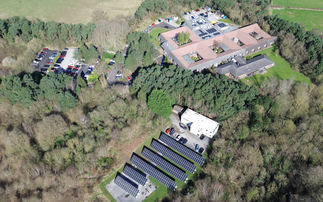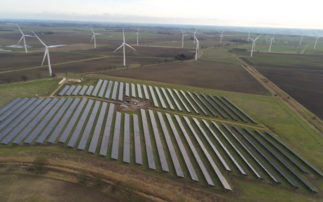A recent undercover investigation by Which? magazine into solar energy systems highlighted that some PV Installer companies were using 'dodgy sales tactics and giving poor advice' to consumers. At a time when consumer demand for the technology is growing rapidly and the wide spread knowledge of PV panels may be limited, any high profiled breach of regulations and best practice could potentially be very damaging to the industry and has to be taken extremely seriously.
So what has to happen to ensure consumers receive the best possible advice on purchasing and installing PV panels?
The Microgeneration Certification Scheme (MCS) is the internationally recognised quality assurance scheme designed with input from product and installer representatives. All MCS certificated products and installers have been rigorously tested against a robust set of criteria to provide greater protection for consumers. The fact that a number of PV installer companies have, in this instance, been operating outside the MCS scheme rules and REAL Assurance Scheme Consumer Code is obviously a real cause for concern. To maintain consumer trust and the integrity of the standard it's essential that any claims or allegations of non-compliance are reported and investigated immediately by the relevant Certification Bodies, which has been and will continue to be the case.
One of the main findings from Which?'s report was that some of the companies reviewed did not take into account that parts of the roof were partly shaded at certain times of the day, which adversely effects the solar photovoltaic panels electricity generating potential. The shading issue should be addressed; consumers need to be made aware of the issues, solutions and potential impacts on the generating capacity. The REAL Assurance Scheme Consumer Code which underpins the MCS clearly specifies how registered companies' staff should interact with customers and prevents activity such as pressure sales tactics and creating a false impression of the benefits and payback times. In failing to explain the effects of shading, these companies have breached these rules. It is of vital importance that companies ensure all sale agents and staff are sufficiently trained, technically competent and adhere to the standards set out in the MCS and REAL Assurance Consumer Code.
Likewise, another issue raised was some companies underestimated the time it would take for the system to pay for itself. Again, this simply isn't acceptable. Money savings and earning money back from the feed-in tariff are the two biggest drivers of consumers investing in solar PV panels, therefore this has to be improved. Whilst there are plenty of accurate sources of information out there, such as the Energy Saving Trust, to research the efficiency gains of microgeneration technology, the majority of consumers will take the advice from the experts. As an industry we therefore have a duty to reward this consumer trust by doing everything possible to provide the most accurate portrait of the costs and benefits of renewable technology.
To calculate the returns of solar photovoltaic panels, the official data methodology being used, under SAP 2005, states that the UK is one weather zone. Admittedly, using a country average rather than location-based solar data, can cause discrepancies in calculations, however installers are encouraged to use region-specific formulas (as long as it doesn't take precedent) to paint both pictures and clearly explain the reasoning for their calculations. Currently, the MCS Solar PV Technical Working Group has been looking at revisions to make calculations even more appropriate, and is due to report shortly on its proposals. Looking to the future, the group will seek to address other aspects of informing the customer about the life of the products and components and the impact this may have within the performance data provided.
Whilst it's easy to get hung up on the negatives of the Which? report it should be remembered that there are many companies and representatives that are doing a fantastic job and are a credit to the microgeneration industry over. Maintaining consumer trust in these green initiatives is crucial to the UK meeting its ambitious carbon reduction targets, therefore it's essential that the consumer is placed at the heart of all future initiatives and policy to ensure the industry continues to prosper.
Laura Fosh is the business development manager at Gemserv







